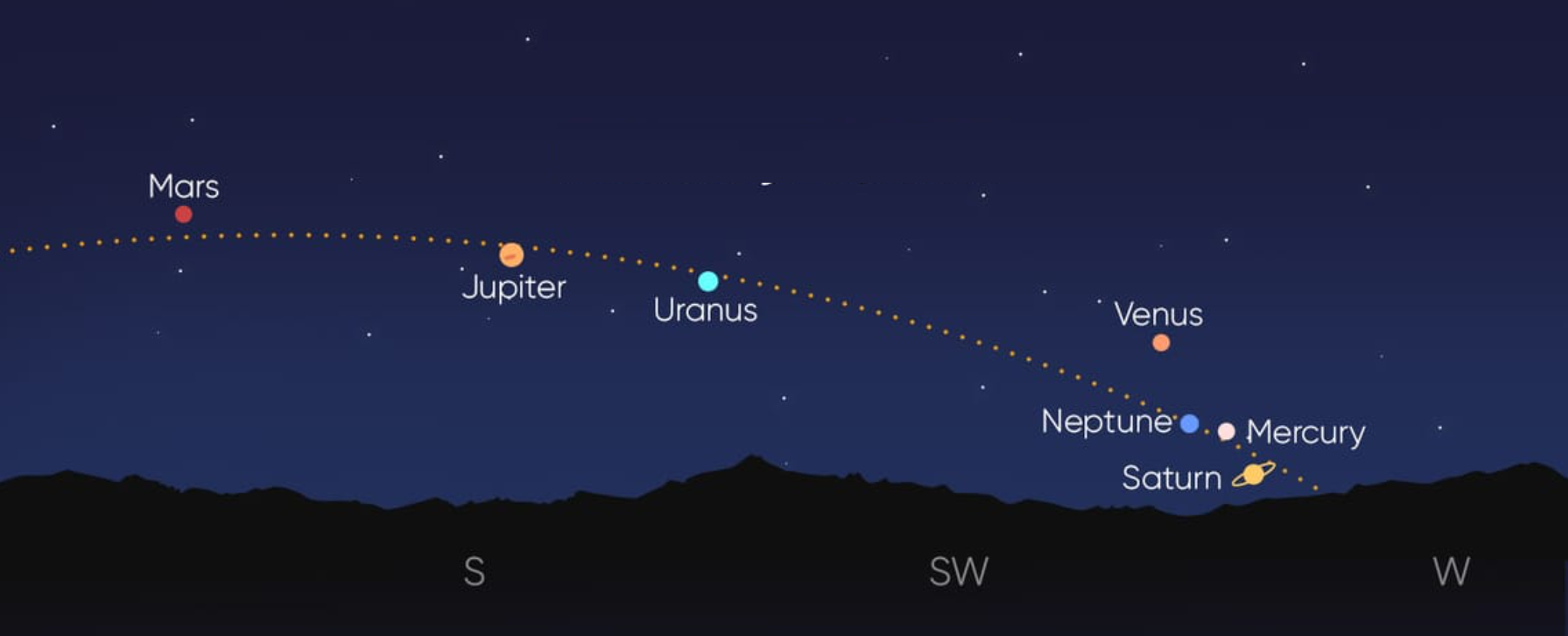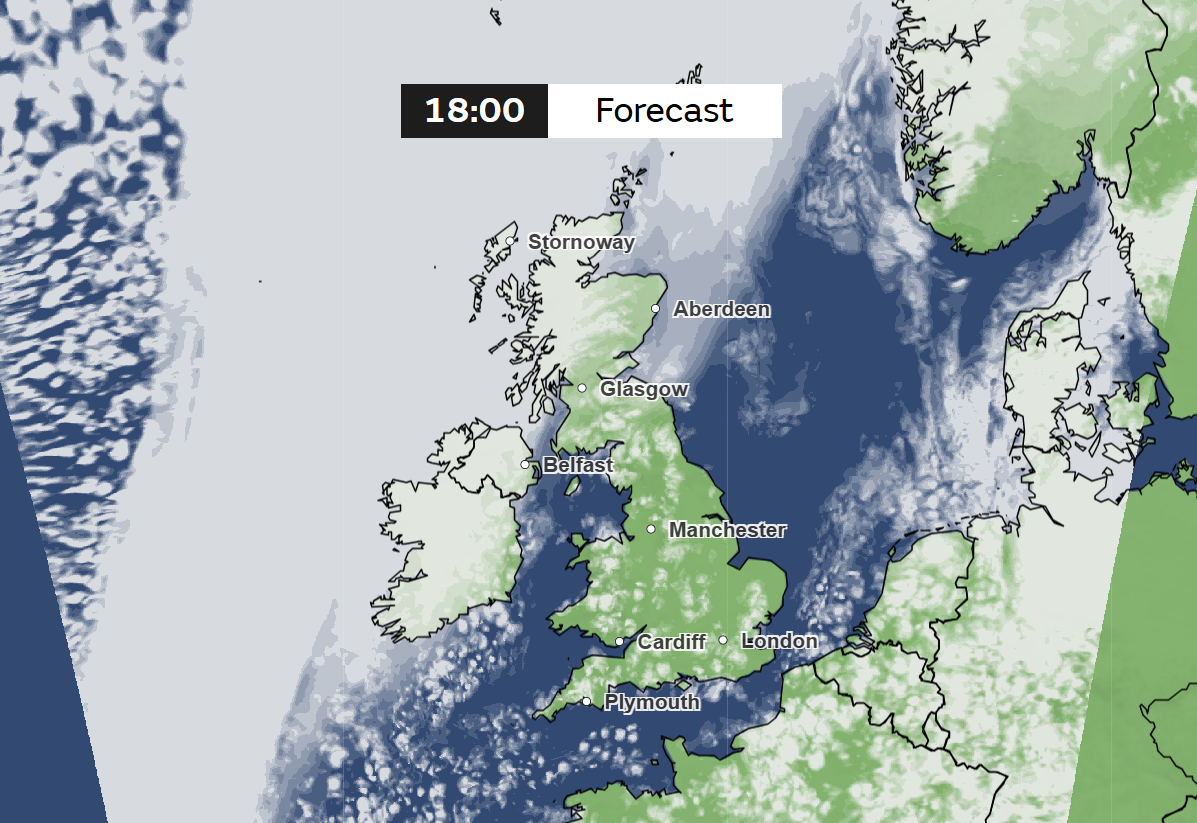
For a brief moment on Friday, every planet will appear in the night sky simultaneously in a rare celestial spectacle.
This so-called planetary parade, which will occur shortly after sunset on 28 February, will be the last time the phenomenon occurs until 2040.
The full planetary alignment will see Mars, Jupiter, Uranus, Venus, Neptune, Mercury and Saturn line up, though not all planets will be visible to the naked eye.
While most will appear brighter than the brightest stars, Neptune and Uranus will require binoculars or a telescope to view.
Planetary parades of four or five planets happen relatively regularly, though alignments of six or seven are remarkably rare.

Six planets are already aligned in the night sky, but stargazers will have to wait until 28 February for Mercury to appear just above the horizon to complete the astronomical event.
Experts have noted that the best time to witness the celestial phenomena is just after sunset when the stars begin to appear in the sky.
The latest forecast from the Met Office shows that weather conditions will be nearly perfect throughout most of the UK, with clouds only covering parts of Northern Ireland and northern Scotland.

“Mars will appear in the east, Jupiter and Uranus in the southeast, and Venus, Neptune, and Saturn in the west,” Dr Christopher Barnes, a senior lecturer at the University of Derby, told The Independent.
“Even people in cities and light-polluted areas will be able to see most of the planets, but for the best views, it is advisable to find a darker location. Almost all the planets will be visible to the naked eye, except for Uranus and Neptune, which will require binoculars or a telescope.”
Dr Barnes notes that taking time to observe the planetary parade can be beneficial for a person’s general well-being.
“Beyond their cultural significance, stargazing has many tangible benefits,” he said.
“Engaging with the night sky encourages mindfulness, allowing individuals to momentarily detach from daily stresses and immerse themselves in the present moment. This practice can foster a sense of peace, restoration, and perspective.”
The next planetary alignment of five or more planets will be in late October 2028, and then again in February 2034. Another seven-planet alignment will not happen again for another 15 years.
Several observatories will be offering live views of the planetary parade on 28 February, allowing people to witness the phenomenon regardless of light pollution or weather conditions.







